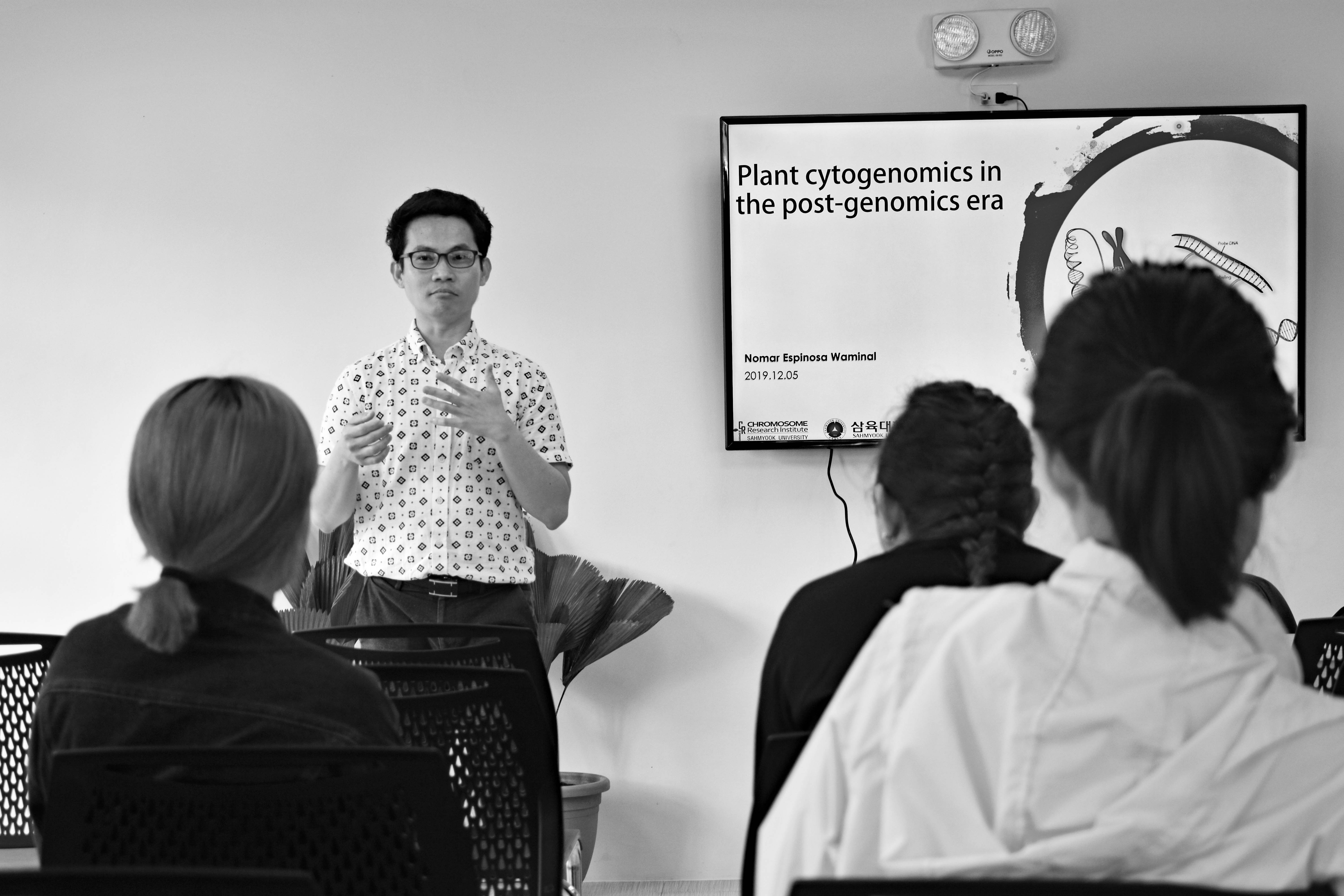This seminar features the PGC hosted Balik Scientist Dr. Nomar Waminal who will be presenting his talk on “Cytogenetics in Plant Breeding: Conservation and Evolution in the Post-Genomics Era”. Dr. Waminal is currently serving as a Research Professor under the Chromosome Research Institute at Sahmyook University, Seoul, Republic of Korea. He was a Samsung Global Scholar and received his Ph.D. in Crop Science and Biotechnology from Seoul National University.
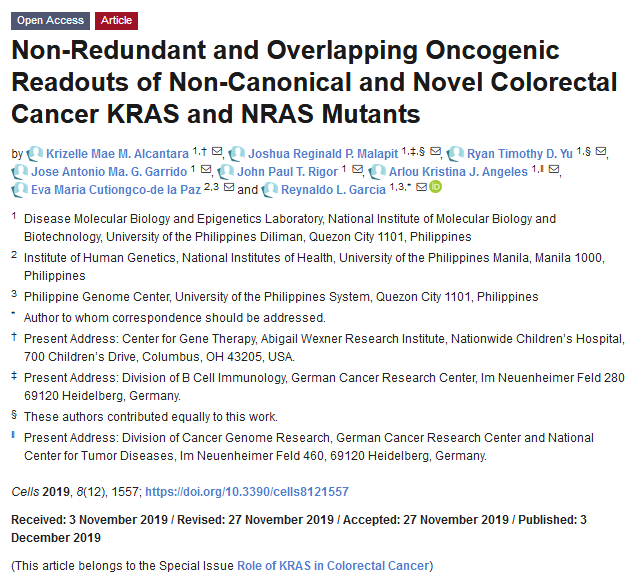
Non-Redundant and Overlapping Oncogenic Readouts of Non-Canonical and Novel Colorectal Cancer KRAS and NRAS Mutants
The efficacy of monoclonal antibodies targeting the epidermal growth factor receptor (EGFR) pathway for treatment of colorectal cancer (CRC) depends on predictive biomarkers that can identify likely responders or non-responders to therapy.

Draft Genome Sequence of Multidrug-Resistant Vibrio parahaemolyticus Strain PH698, Infecting Penaeid Shrimp in the Philippines
The emergence of multidrug-resistant bacterial strains in diverse settings has been reported globally. In the Philippine shrimp aquaculture industry, antibiotics are used for the treatment of bacterial diseases during the production cycle. We report the draft genome of Vibrio parahaemolyticus PH698, a multidrug-resistant strain isolated from a Philippine shrimp farm.
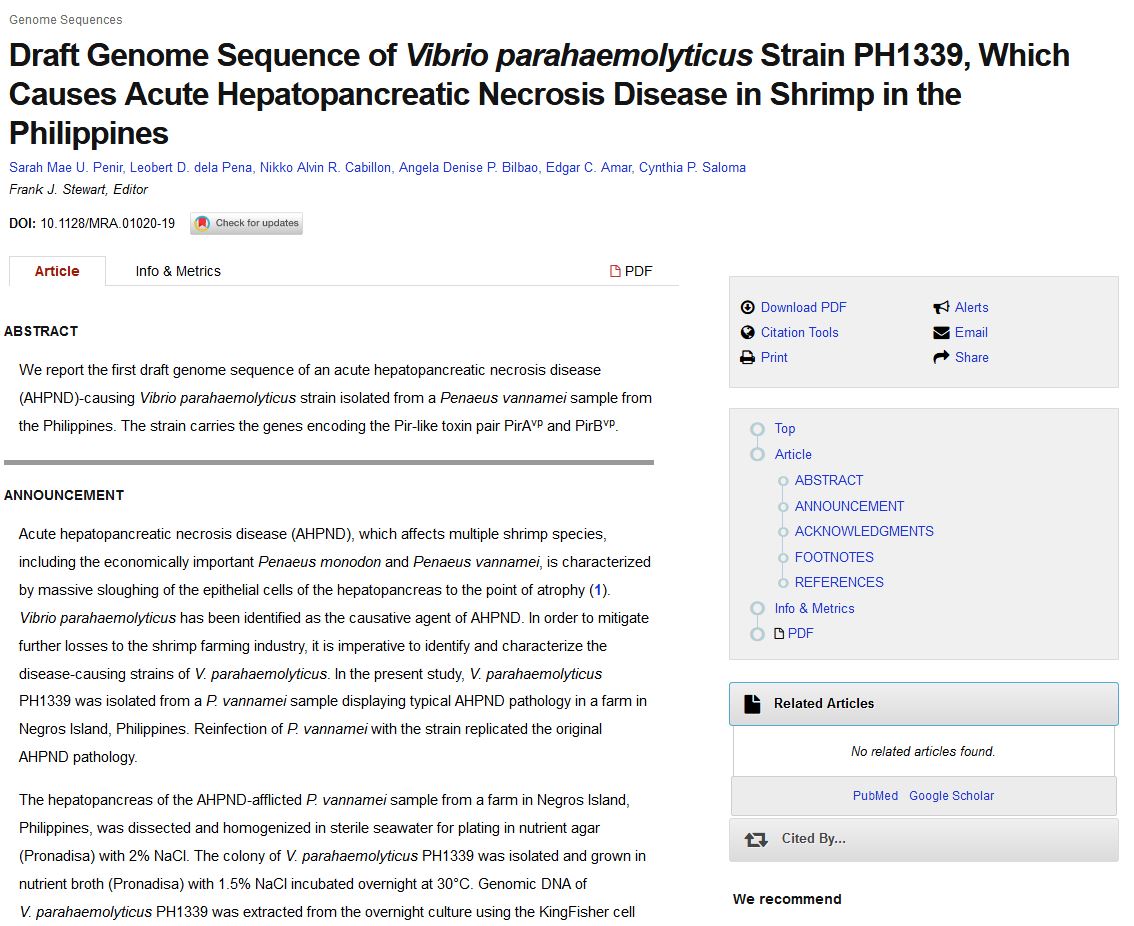
Draft Genome Sequence of Vibrio parahaemolyticus Strain PH1339, Which Causes Acute Hepatopancreatic Necrosis Disease in Shrimp in the Philippines
Acute hepatopancreatic necrosis disease (AHPND), which affects multiple shrimp species, including the economically important Penaeus monodon and Penaeus vannamei, is characterized by massive sloughing of the epithelial cells of the hepatopancreas to the point of atrophy (1).
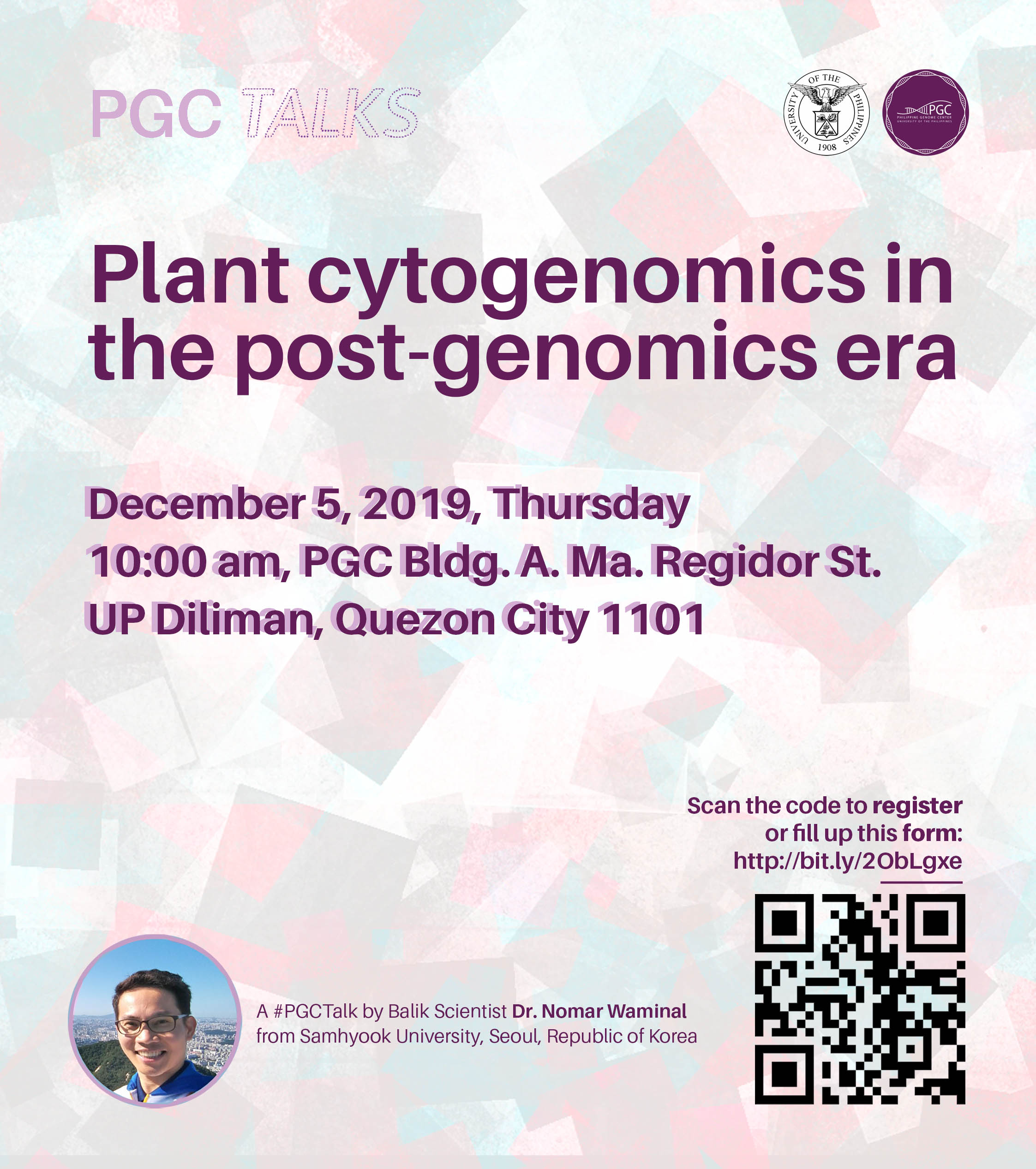
Plant cytogenomics in the post-genomics era
The release of the first human reference genome in 2003 marked the beginning of the post-genomics era when genetics progressed beyond gene-centered analyses to a myriad of omics approaches. Genome sequencing technologies have advanced dramatically from Sanger, second/next-generation, to third-generation sequencing platforms. Also, genome assembly methods and tools have evolved contemporaneously, resulting in a dramatic drop in genome assembly cost. Consequently, more than 360 plant species’ genomes have been assembled ever since the first plant genome, Arabidopsis thaliana, was published in 2000.
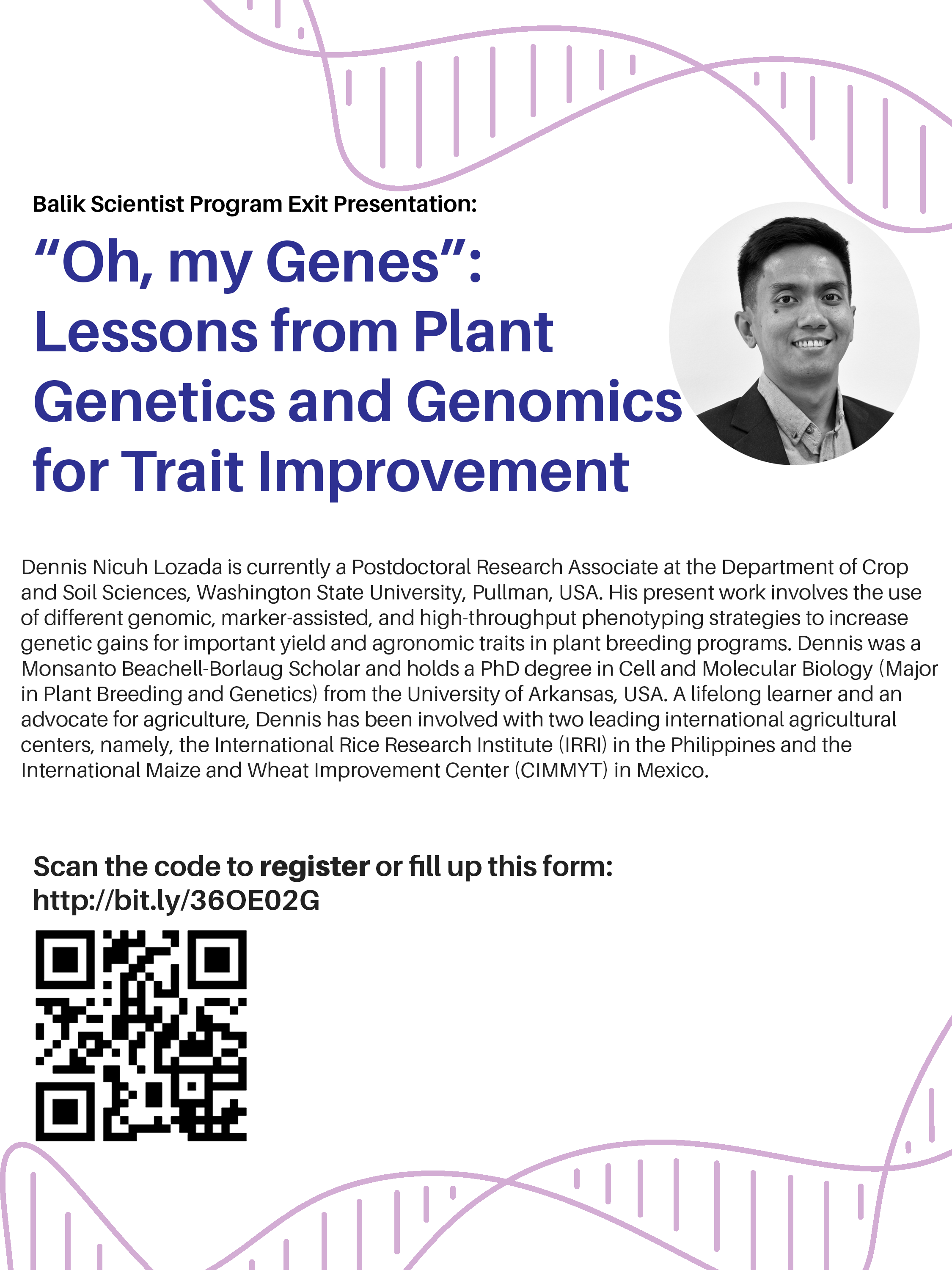
“Oh, my Genes”: Lessons from Plant Genetics and Genomics for Trait Improvement
In recent years, genetics and genomics has played an important role in facilitating the genetic improvement of plants. Different tools have been developed to examine the structure, function, and properties of genes controlling complex traits. The genetic diversity of germplasm found in existing gene banks through different breeding populations such as core collections, nested association mapping panels, mutants, recombinant inbred lines, and multiparent advance generation intercross populations in germplasm banks served as sources of desirable alleles for plant breeding.
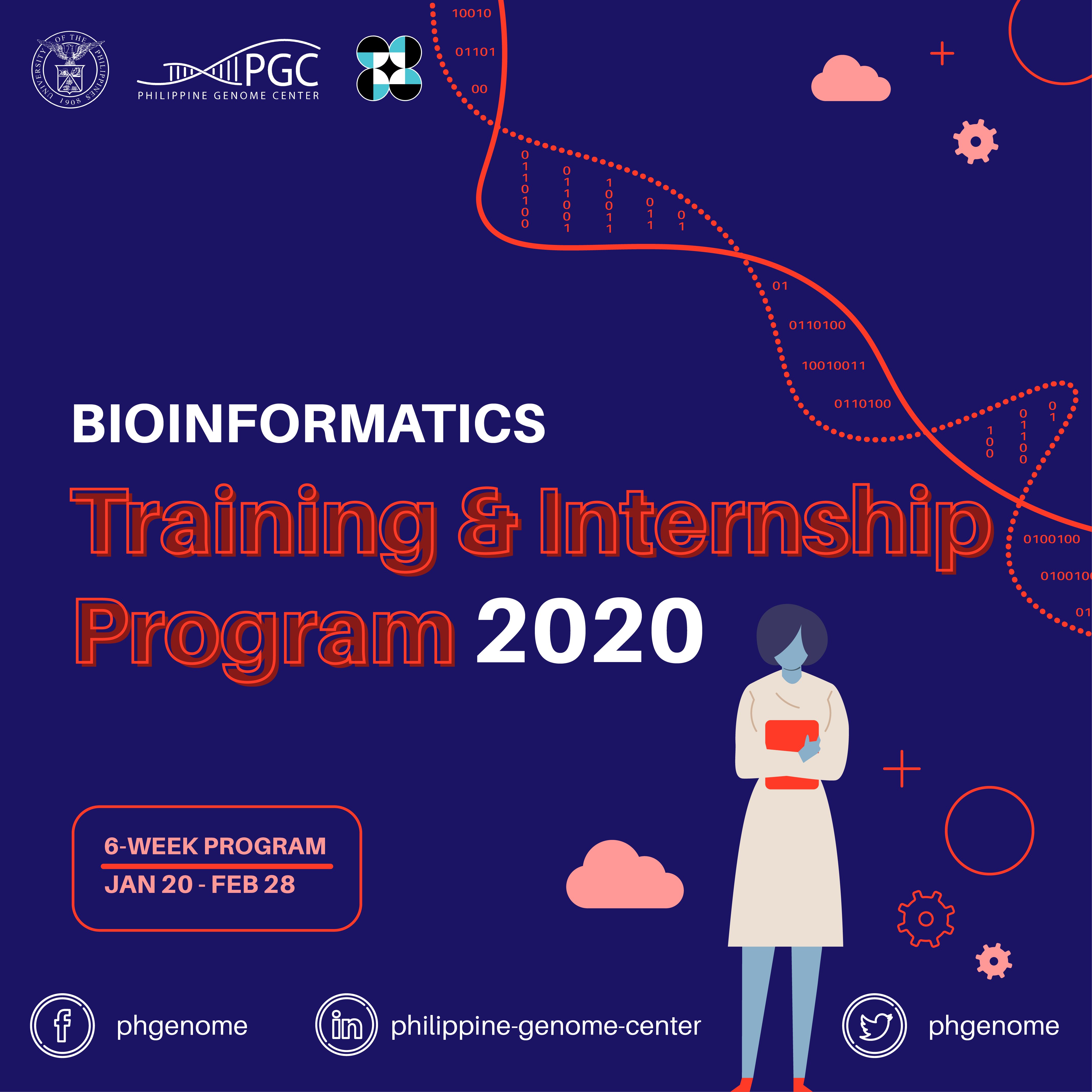
Call for applications: 2019-2020 Bioinformatics Training and Internship Program (Batch 04: Jan-Feb)
Student applicants must be undergraduate or graduate students in good academic standing, enrolled in a science or engineering course at an accredited college or university in the Philippines. Young professional applicants must have a BS degree in a science or engineering field, and be a researcher and/or faculty member employed at a research or higher education institution in the Philippines.
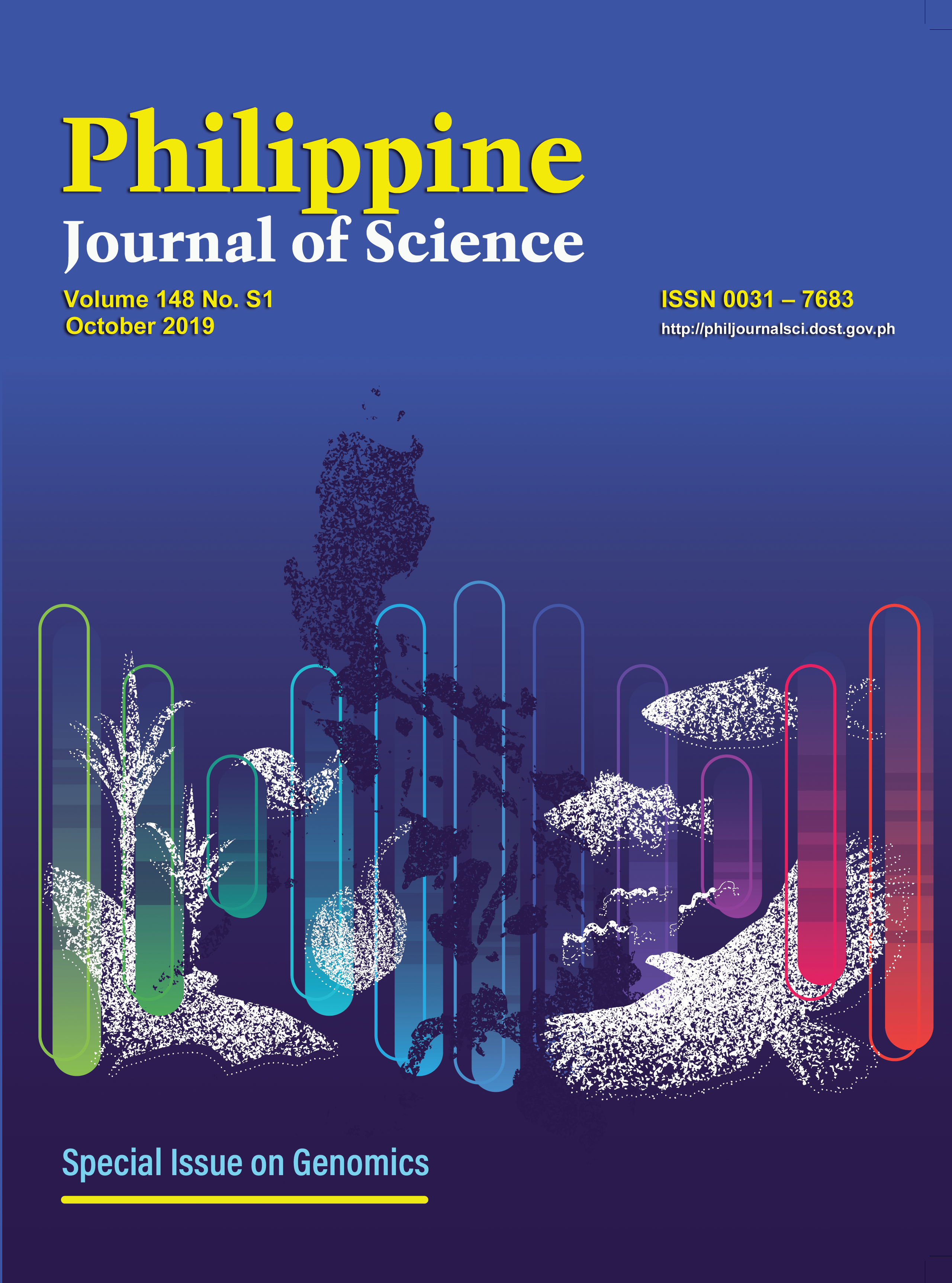
Philippine Journal of Science Special Issue on Genomics
This special issue’s cover is accompanied by the different species covered by the studies in this journal.
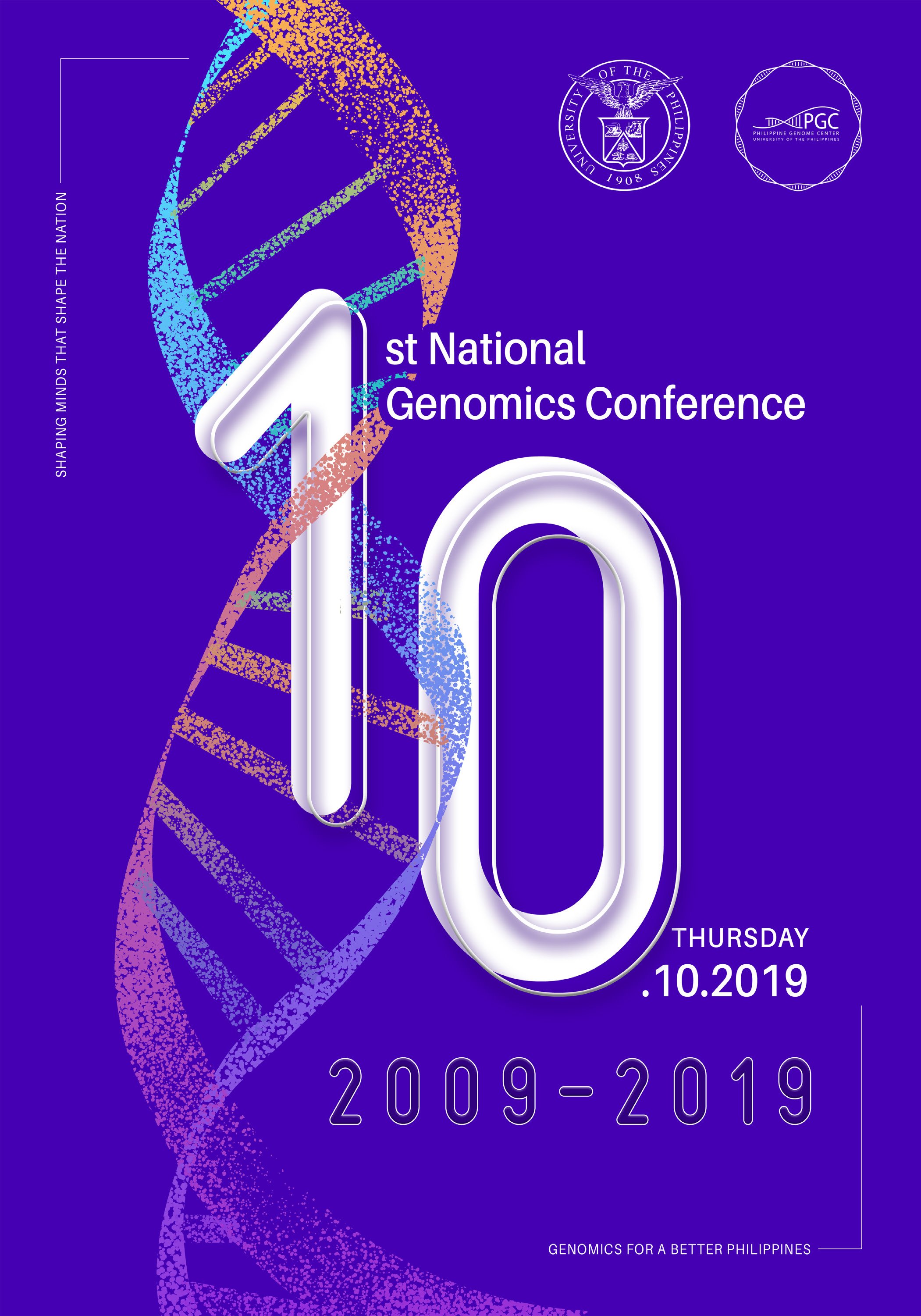
1st National Genomics Conference Souvenir Program
Themed “Omics research in the next 5 years with the Philippine Genome Center”, the conference was organized to showcase the current and ongoing research programs of the Center. By engaging researchers, academics, decision-makers, and other stakeholders, PGC is bringing #PGCTalks to institutions keen on multi-omics research.
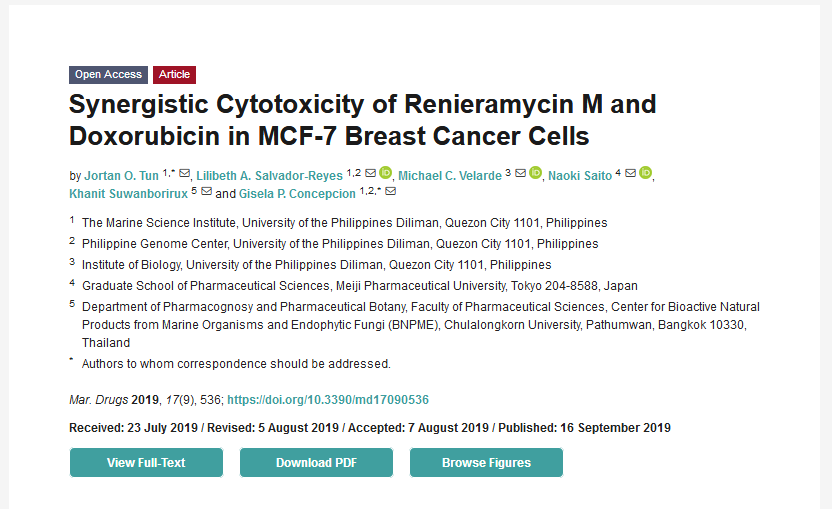
Synergistic Cytotoxicity of Renieramycin M and Doxorubicin in MCF-7 Breast Cancer Cells
Renieramycin M (RM) is a KCN-stabilized tetrahydroisoquinoline purified from the blue sponge Xestospongia sp., with nanomolar IC50s against several cancer cell lines. Our goal is to evaluate its combination effects with doxorubicin (DOX) in estrogen receptor positive MCF-7 breast cancer cells.

